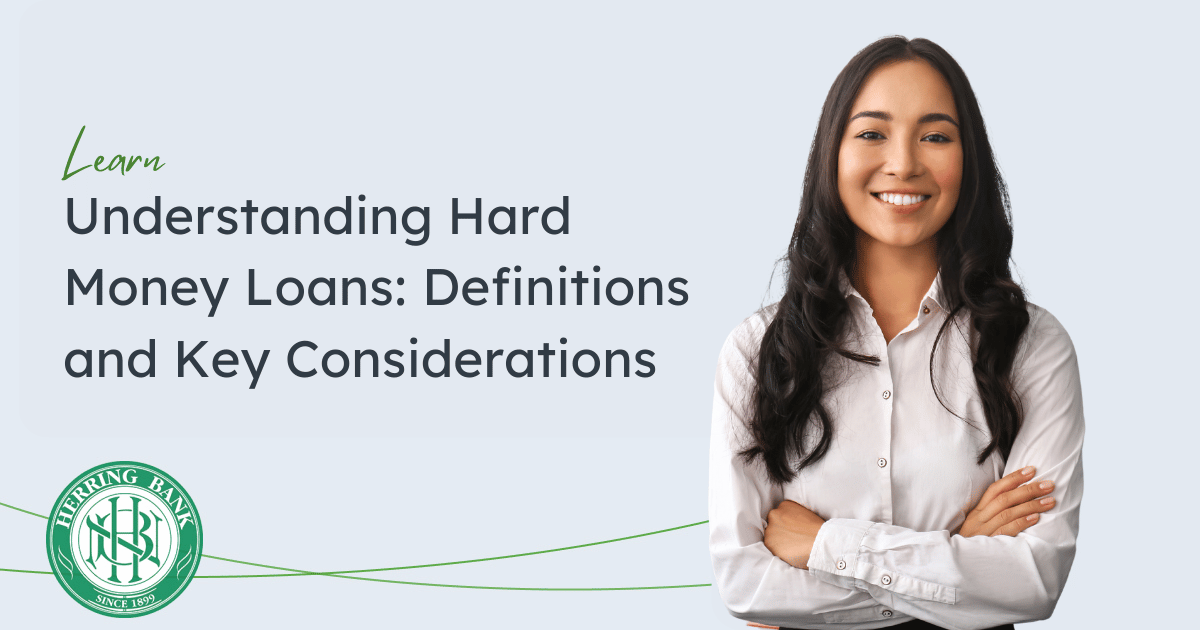
How to Buy a House With Bad Credit: Understanding Your Options
Struggling with a less-than-ideal credit score can often feel like a roadblock to achieving the dream of home ownership. Given the pivotal role that personal finance plays in purchasing a home, especially in rural areas, the prospect might seem daunting for many potential home buyers. This will provide practical strategies for securing a mortgage loan with bad credit, from understanding the effects of credit on the loan process to refining your application, and even exploring refinancing options as a long-term solution. Understanding Bad Credit in the Home Buying Process
Understanding the cause of bad credit is essential in the home buying journey. When lenders evaluate mortgage applications, they dissect credit scores to gauge credit risk, affecting interest rates and the required down payment. Buyers commonly confront hurdles such as subprime lending limitations and stringent Freddie Mac requirements.
Defining Bad Credit Scores and Their Impact
A bad credit score can significantly affect an individual's ability to secure a favorable home loan. Typically, scores below 620 are considered subprime, which can limit the number of lenders willing to enter into a contract, increase the interest rates on loans, and raise the required cash for a down payment. As such, individuals with a lower credit score may find their budget tightly constrained, necessitating a more robust budget strategy and potentially leading to the consideration of different types of debt instruments or creative financing solutions to afford homeownership.
How Lenders Assess Creditworthiness
Mortgage lenders evaluate creditworthiness by sifting through credit reports from the credit bureaus, meticulously reviewing payment history, debts, and past loan performance. These factors affect the underwriting process, where the risk associated with lending is quantified, possibly mandating higher fees or mortgage insurance to protect the lender's investment. Consequently, for those with less-than-ideal credit, understanding these assessments helps in preparing to meet lender expectations or exploring alternative financing routes.
Common Credit Challenges Faced by Buyers
Buyers grappling with bad credit often face challenges such as increased scrutiny from lenders, who dissect credit reports provided by bureaus like TransUnion to unearth financial behaviors. These individuals may also fall victim to predatory lending practices, where they are offered loans with exorbitant rates and unfair terms, further complicating their real estate aspirations. A proactive approach involves enlisting a knowledgeable real estate agent who can navigate these obstacles and help secure a loan that aligns with the buyer's financial capabilities.
Exploring Mortgage Options Available With Bad Credit
Securing a mortgage with bad credit is not out of reach, as various programs cater to those with credit challenges. Federal Housing Administration FHA Loans are an accessible option, offering flexibility on credit scores and down payments. Department of Veterans Affairs VA Loans present eligible veterans with advantageous terms and minimal credit requirements. United States Department of Agriculture USDA Loans cater to rural homebuyers, while those with significant credit concerns might consider Subprime Mortgage Lenders or investigating Portfolio Loans. These alternatives demonstrate that homeownership can still be attainable despite past credit card debt or a thin credit history.
Federal Housing Administration (FHA) Loans
Federal Housing Administration (FHA) Loans serve as a beacon of hope for potential homeowners facing credit challenges. These government-backed loans offer more lenient credit requirements and lower down payment options, making them a popular choice among buyers with credit scores that may prompt traditional lenders to hesitate. The FHA provides protections to lenders from potential default, which encourages credit unions and other financial institutions to offer these loans to consumers; however, applicants must exhibit stable employment to prove their ability to sustain regular monthly payments. The Consumer Financial Protection Bureau provides guidelines ensuring that borrowers are well-informed and prepared for the financial commitment of homeownership through FHA loans.
Department of Veterans Affairs (VA) Loans
For those who have served in the United States' armed forces, the Department of Veterans Affairs (VA) Loans emerge as a viable home loan option, even with credit challenges. Unlike traditional loans, VA loans often forgo the stringent background check on credit card history or lower credit scores, focusing instead on the veteran’s service history and income stability to determine eligibility. By removing the barriers of high down payments and private mortgage insurance, VA loans provide former military personnel with a path to homeownership that acknowledges their service while accommodating their unique financial situations.
United States Department of Agriculture (USDA) Loans
The United States Department of Agriculture (USDA) Loans present an attractive avenue for individuals with less-than-ideal credit scores seeking to purchase a home in rural areas. These loans often require no down payment, which can greatly reduce the initial financial burden for potential buyers. By considering the credit score in conjunction with the ratio of debt to income and housing equity, USDA loans can offer debt relief to those who might otherwise not qualify for conventional mortgages. Notably, the USDA works closely with lenders who provide these loans to ensure applicants’ creditworthiness is appropriately assessed against their entire financial situation, not just the credit score reported by major credit bureaus like Equifax.
Considering Subprime Mortgage Lenders
Considering Subprime Mortgage Lenders may be a necessary step for individuals whose credit limit and financial history impede them from securing traditional financing. These lenders specialize in loans that accommodate higher interest rates and varied debt-to-income ratios, offering a lifeline to those recovering from financial distress and foreclosure. While this route can open doors to homeownership, it's imperative that buyers understand the terms and long-term financial commitments involved to ensure that the arrangement aligns with their capacity to finance and sustain a mortgage over time.
Investigating Portfolio Loans
Portfolio loans emerge as a tailored financing option when traditional mortgage pathways prove challenging due to credit constraints. These specialized loans, crafted by lenders who retain them in their own investment portfolios, offer flexibility with credit requirements and potentially circumvent the rigidity of conventional loan criteria. A mortgage broker can guide applicants through the process, negotiating terms like the annual percentage rate that reflect the unique financial picture of the borrower. For homebuyers dealing with credit hurdles, securing a portfolio loan can present a feasible solution to accumulate both property and equity.
Steps to Improve Your Credit Before Applying
Improving one's credit rating is a decisive step towards qualifying for home loans even with a less-than-ideal financial past. Potential homeowners must engage in practical measures such as scrutinizing and amending inaccuracies in their credit report, reducing outstanding debt, ensuring punctual payment histories, and restraining from excessive credit applications, all of which may mitigate risk in the eyes of lenders. Assistance from credit counseling services can also lay the groundwork for a more secure financial future. Each strategic initiative contributes to a stronger credit profile, enhancing eligibility for favorable loan terms and rates.
Reviewing and Correcting Your Credit Report
Initiating the journey towards home equity and financial stability begins with a thorough analysis and correction of your credit report. This step is imperative, as errors in one's credit history can impact interest rates and the approval process for a line of credit. Prior to house hunting, individuals should request their credit reports, inspect them meticulously for inaccuracies, and dispute any discrepancies to prevent negative ramifications like unjustified repossessions impacting their prospects. Securing a home loan with a clean and accurate credit report not only facilitates smoother transactions but can also lead to more favorable loan terms for the buyer.
Reducing Outstanding Debt Balances
Reducing outstanding debt is a critical measure for enhancing one's credit profile, thus expanding options when considering a home purchase. Active repayment negotiations with creditors can lead to reduced balances, reflecting positively on credit reports monitored by entities like Fannie Mae. For veterans especially, minimizing debt can pave the way to more advantageous homebuying terms, affecting both the purchase price and the range of available financing options. Buyers should prioritize debts with the highest interest rates, as lowering these balances can significantly improve credit scores, thereby ensuring better positioning for mortgage approval and more favorable loan conditions.
Establishing a History of on-Time Payments
Establishing a history of on-time payments is paramount for potential homebuyers aiming to rehabilitate their credit score. Consistency in meeting debt obligations, whether for a rocket mortgage, home equity loan, or VA loan, signals to lenders in Texas and beyond that the borrower is a lower credit risk. This diligent payment pattern can catalyze improvements in credit scores, increasing eligibility for favorable loan terms and rates, and is an actionable step towards securing a mortgage despite past financial challenges.
Limiting New Credit Applications
When endeavoring to improve credit for a future home purchase, it's imperative to minimize the number of new credit applications. Each credit inquiry can slightly lower one's credit score, which lenders scrutinize during the mortgage approval process. Therefore, by restraining from seeking additional credit lines until after securing a home loan, individuals can protect their score from unnecessary dips and present a more stable credit standing to potential lenders.
Seeking Guidance From Credit Counseling Services
Seeking the assistance of credit counseling services is a prudent step for individuals aiming to strengthen their credit before purchasing a home. These professional services offer personalized advice and practical strategies to manage debt effectively, improve payment habits, and overhaul financial health. By partnering with a reputable credit counselor, prospective homebuyers can receive tailored guidance to navigate their credit challenges, laying a firmer foundation for mortgage approval and homeownership.
Alternative Financing Strategies for Low Credit Scores
House hunting with a less-than-stellar credit profile can seem daunting, but there are alternative strategies that aspiring homeowners can explore. Accumulating a larger down payment can offset credit score concerns, while engaging a co-signer can bolster mortgage applications. Rent-to-own agreements provide a gradual transition to ownership, as do seller financing options, which bypass traditional lending routes. Active participation in local housing assistance programs also offers support tailored for individuals with credit challenges. Each of these avenues will be examined to present viable paths towards homeownership despite credit obstacles.
Saving for a Larger Down Payment
Accumulating a larger down payment often serves as a strategic move for individuals with suboptimal credit scores looking to purchase a home. Saving a substantial sum upfront can prove to lenders the buyer's commitment and financial responsibility, potentially compensating for a less favorable credit history. Furthermore, this approach may unlock lower interest rates and reduced mortgage insurance premiums, presenting a long-term financial benefit and easing the monthly burden associated with homeownership.
Utilizing a Co-Signer for Your Mortgage
Enlisting a co-signer can provide a significant advantage for homebuyers with lower credit scores seeking mortgage approval. A trusted individual with a strong credit background can agree to co-sign the loan, thereby offering lenders additional assurance against default. This strategy not only enhances the buyer's chances of obtaining a mortgage but might also lead to more favorable loan terms, reflecting the lowered risk inherent in the lender's decision to extend credit.
Entering Into Rent-to-Own Agreements
Entering into rent-to-own agreements is a strategic avenue for individuals with poor credit scores who are seeking homeownership. These arrangements involve leasing a property with the option to buy after a set period, often while a portion of the rent contributes to the down payment. This setup affords the buyer time to improve their credit standing, save for a substantial down payment, and lock in a purchase price, all while living in the future home. It's a practical solution that bridges the gap between renting and owning, providing a structured path to homeownership for those working to rebuild their financial health.
Exploring Seller Financing Options
Exploring seller financing options presents an innovative solution for prospective buyers with poor credit scores. In these arrangements, the seller carries the mortgage, acting as the lender, thus enabling buyers to bypass traditional financing hurdles. This can be particularly advantageous for buyers who may not qualify for standard loans due to their credit history but have sufficient income to handle monthly payments, offering a tailored route to homeownership. As every seller financing deal is unique, buyers are advised to engage with legal and financial professionals to ensure terms are transparent and protective of their interests.
Participating in Local Housing Assistance Programs
For individuals burdened by poor credit seeking to fulfill their homeownership dream, engaging with local housing assistance programs can offer indispensable support. These programs often provide education on the home-buying process, assistance with down payments, and guidance toward loans geared for low-to-moderate income buyers with credit challenges. By leveraging the resources available through housing assistance initiatives, potential buyers can navigate the complexities of purchasing a home and may find opportunities to improve their creditworthiness in parallel with their goal of property ownership.
Strengthening Your Mortgage Application
When applying for a mortgage with less-than-perfect credit, bolstering the application is critical. Applicants should be prepared to demonstrate stable and verifiable income, provide consistent proof of employment, highlight any additional assets and reserves, and craft a detailed explanation of any credit issues. Collaborating with an experienced mortgage broker can further navigate this complex terrain. These steps, which are essential for a strong application, will be further expanded upon in the following sections.
Demonstrating Stable and Verifiable Income
Demonstrating stable and verifiable income is critical when seeking a mortgage with a credit score that lacks luster. Lenders scrutinize income history as it indicates the borrower's capacity to uphold monthly payments — a beacon of reliability in a cloud of credit uncertainty. Presenting extensive documentation such as tax returns, pay stubs, and W-2 forms, can support claims of financial stability, tilting the scales in favor of loan approval despite credit imperfections.
Providing Proof of Employment Stability
Providing proof of employment stability can significantly strengthen a mortgage application, especially for those with a compromised credit history. Lenders are reassured by a track record of consistent employment, which suggests a borrower's sustained capability to fulfill loan obligations. Applicants should prepare by organizing a history of employment documentation, such as letters from employers or income verification, to demonstrate a reliable source of income — a fundamental aspect lenders evaluate when considering a loan approval.
Showcasing Additional Assets and Reserves
For mortgage applicants with credit challenges, presenting a portfolio of additional assets and financial reserves can make a significant difference. By demonstrating to lenders the existence of liquid assets, investment accounts, or other tangible properties, buyers substantiate their capacity to handle unforeseen circumstances and reinforce their financial stability. This strategy conveys a sense of security to lenders, mitigating the perceived risk and potentially improving the odds of loan approval in the competitive mortgage landscape.
Preparing a Letter Explaining Credit Issues
Preparing a letter explaining credit issues is a strategic move when fortifying a mortgage application. Such a letter offers applicants a chance to provide context for their credit score, detailing reasons like medical emergencies or temporary unemployment that may have led to financial missteps. By articulating the steps taken to rectify credit problems, such as attending debt management programs or improving spending habits, the borrower demonstrates a proactive and responsible approach to overcoming their past credit challenges.
Working With a Knowledgeable Mortgage Broker
Working with a knowledgeable mortgage broker can be instrumental for homebuyers navigating the complexities of purchasing with bad credit. A broker's expertise maximizes the likelihood of loan approval by connecting borrowers with lenders best suited to their financial situation. Such professionals understand the intricacies of mortgage products and can tailor solutions that accommodate the unique challenges posed by lower credit scores, offering a critical edge in securing a suitable home loan.
Frequently Asked Questions About Buying a House With Bad Credit
Navigating the home buying process with a low credit score is an obstacle many face, yet various strategies and programs exist to make homeownership possible. Prospective buyers with credit scores below 600 often question their purchase potential, while others wonder how a larger down payment could influence their approval odds or the interest rates they'll encounter. Additionally, understanding the repercussions of past bankruptcies and seeking support as a first-time buyer with credit issues are vital topics of concern. This section addresses these frequent inquiries, offering valuable insights for those determined to overcome financial hurdles on the path to owning a home.
Is It Possible to Buy a Home With a Credit Score Below 600?
Purchasing a home with a credit score below 600, while challenging, is not impossible. Certain programs, such as FHA loans, are designed to accommodate buyers with less-than-perfect credit by offering more forgiving qualifications. This ensures a segment of the market retains access to homeownership, although likely with higher interest rates and additional requirements to offset the perceived risk to lenders. It's essential for buyers in this credit range to thoroughly explore specialized mortgage products and seek expert assistance to navigate the home buying process effectively.
How Does a Larger Down Payment Influence Approval Odds?
A larger down payment can significantly increase a buyer's chances of loan approval when purchasing a house with bad credit. Lenders view a substantial down payment as a sign of financial commitment and reduced risk, as it lowers the loan-to-value ratio. This commitment can compensate for the lower credit score, sometimes securing more favorable loan terms and demonstrating the buyer's solid investment in the property.
What Are the Interest Rate Differences for Bad Credit Mortgages?
Interest rates for mortgages tend to be higher for borrowers with lower credit scores due to the increased risk perceived by lenders. For those with bad credit, it is common to encounter rates that are several percentage points above the best available rates to borrowers with excellent credit, directly impacting the cost of borrowing and the monthly mortgage payment. Understanding this, it's paramount for buyers with credit challenges to thoroughly compare offers and negotiate terms when possible, seeking mortgage advisors' expertise to secure the most manageable rates in light of their credit standing.
How Do Past Bankruptcies Affect Home Buying?
Past bankruptcies, while challenging, do not permanently preclude individuals from the home buying process. Typically, after meeting specific waiting periods—ranging from one to four years depending on the bankruptcy type and mortgage product—buyers may be eligible to apply for a mortgage. Lenders will require proof of financial stability and good credit behavior post-bankruptcy, emphasizing the importance of rebuilding credit and managing finances responsibly to regain eligibility for home financing options.
Are There Programs to Help First-Time Buyers With Bad Credit?
First-time homebuyers with bad credit can find solace in various assistance programs designed to foster homeownership. For instance, the FHA offers loans that require a lower minimum credit score and down payment, making the path to acquiring a property more attainable. Additionally, state-specific programs and housing initiatives may provide grants or subsidized loans geared specifically toward those with limited credit history. By leveraging these resources, first-time buyers with compromised credit can actualize their aspirations of owning a home while also working to improve their financial standing.
Conclusion
Navigating the intricate process of buying a home with bad credit is undeniably feasible when armed with the correct knowledge and resources. Options like FHA, VA, and USDA loans, along with alternative financing methods, offer hopeful avenues for individuals facing credit challenges. By earnestly working to improve creditworthiness and understanding the intricacies of various mortgage programs, prospective homebuyers can increase their chances of securing a favorable home loan. It's clear that while bad credit may pose obstacles, a range of strategies and support systems enable the realization of homeownership.






